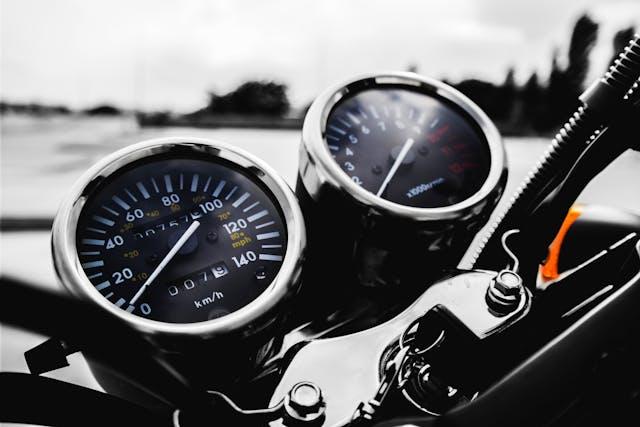
Motorcycle accidents often lead to severe injuries due to the lack of protection for riders. While some crashes occur due to rider error, many are caused by negligent drivers, hazardous road conditions, or defective motorcycle parts. Understanding who is at fault in a motorcycle accident is essential for securing fair compensation.
Liability in motorcycle accidents can be complex, involving multiple parties and legal considerations. Insurance companies frequently attempt to shift blame onto motorcyclists, making it even more critical for victims to understand their rights. If you’ve been involved in a motorcycle crash, knowing how fault is determined, what evidence is required, and how to pursue compensation can significantly impact the outcome of your case.
Common Causes of Motorcycle Accidents
Motorcycle accidents happen for various reasons, but many crashes are the result of driver negligence. Understanding the most common causes can help riders stay vigilant and identify when another party may be at fault.
Driver Negligence
One of the most frequent causes of motorcycle accidents is reckless or inattentive driving by others on the road. Many drivers fail to notice motorcycles due to their smaller size or make careless decisions that lead to collisions. Common negligent actions include:
- Failure to Yield – Many accidents occur when drivers turn left in front of an approaching motorcycle.
- Speeding – Excessive speed reduces reaction time and increases the severity of crashes.
- Distracted Driving – Texting, talking on the phone, or adjusting in-car controls can lead to devastating motorcycle crashes.
- Following Too Closely – Rear-end accidents can be catastrophic for motorcyclists, often resulting in ejections from the bike.
Roadway Hazards
Unlike cars, motorcycles are more vulnerable to hazardous road conditions. Potholes, uneven pavement, loose gravel, and poorly designed intersections can contribute to serious accidents. In such cases, liability may fall on government agencies responsible for road maintenance.
Mechanical Failures
Sometimes, a crash occurs due to defective motorcycle parts or mechanical failures. If brakes, tires, or steering components fail due to poor manufacturing or design, the motorcycle manufacturer or parts supplier could be held liable.
Determining Liability in a Motorcycle Accident
Establishing fault in a motorcycle accident requires a thorough investigation. Since insurance companies often blame riders, collecting solid evidence is crucial for proving another party’s negligence.
Key Evidence in Determining Fault
- Police Reports – Official reports document the accident scene, witness statements, and any traffic violations.
- Eyewitness Testimony – Statements from bystanders can confirm who was responsible for the crash.
- Traffic Camera Footage – Surveillance footage may provide critical proof of negligent driving.
- Vehicle Damage Analysis – Examining the damage can help reconstruct how the accident happened.
- Medical Records – These records link your injuries directly to the accident, strengthening your claim.
Who Can Be Held Liable for a Motorcycle Crash?
Determining fault in a motorcycle accident involves identifying which party’s negligence led to the crash. Several potential parties may be liable, depending on the circumstances.
Passenger Vehicle Drivers
In many cases, car and truck drivers are responsible for motorcycle crashes. When a driver fails to yield, speeds, or drives distracted, they can be held legally accountable for the accident.
Government Entities
If a road hazard contributed to the crash, a city or state agency responsible for road maintenance may be liable. Proving this type of liability can be challenging, as government agencies have strict deadlines and legal protections.
Motorcycle Manufacturers
If a defective part caused brake failure, engine issues, or loss of control, the manufacturer may be at fault. Victims in these cases may file a product liability claim to seek compensation.
Other Motorcyclists
In some situations, another motorcyclist’s reckless behavior may cause a crash. Lane splitting at high speeds, sudden lane changes, or racing can result in multi-motorcycle collisions.
Comparative Negligence in Motorcycle Accidents
Many states follow a comparative negligence rule, meaning multiple parties can share responsibility for an accident. Under these laws, your compensation may be reduced if you are found partially at fault.
For example, if you were speeding at the time of the accident but the other driver failed to yield, you may be assigned 20% fault while the driver bears 80% fault. If your damages total $100,000, you would only recover $80,000 due to your share of fault.
Seeking Compensation After a Motorcycle Accident
Motorcycle accident victims may be entitled to compensation for medical bills, lost wages, pain and suffering, and property damage. The value of a claim depends on the severity of injuries and the level of negligence involved.
Damages You Can Recover
- Medical Expenses – Covers hospital bills, surgeries, rehabilitation, and long-term care.
- Lost Income – Compensation for missed work and future loss of earning capacity.
- Pain and Suffering – Accounts for emotional distress and physical pain caused by the crash.
- Property Damage – Covers repairs or replacement of your motorcycle and gear.
The Role of a Motorcycle Accident Lawyer
Navigating a motorcycle accident claim without legal representation can be overwhelming, especially when dealing with insurance companies that try to minimize payouts. An attorney can gather evidence, negotiate settlements, and take your case to court if necessary.
For those seeking legal guidance, a Motorcycle Accident Lawyer in East Providence can help protect your rights and pursue the full compensation you deserve.
Legal Deadlines for Filing a Motorcycle Accident Claim
Every state has a statute of limitations for filing personal injury claims. If you miss this deadline, you may lose the right to seek compensation. In Rhode Island, motorcycle accident victims generally have three years from the accident date to file a claim. However, if the case involves a government entity, the deadline may be shorter.
Preventing Motorcycle Accidents
While some motorcycle accidents are unavoidable, riders can take precautions to reduce their risk of serious injuries.
Safety Tips for Motorcyclists
- Wear Protective Gear – Helmets, gloves, and padded jackets can prevent severe injuries.
- Obey Traffic Laws – Following speed limits and traffic signals reduces collision risks.
- Stay Visible – Using reflective gear and keeping headlights on makes riders more noticeable.
- Maintain Your Bike – Regular inspections ensure brakes, tires, and lights function properly.
- Avoid Riding in Bad Weather – Wet roads and low visibility increase accident risks.
Conclusion
Determining liability in a motorcycle accident is not always straightforward, as multiple parties may share responsibility. Understanding common causes, legal options, and comparative negligence laws can help victims build strong claims and maximize compensation.
If you’ve been injured in a motorcycle crash, gathering evidence, proving liability, and working with an attorney are essential steps in securing justice. For more information on motorcycle accident claims, visit Gemma Law Associates’ profile. Additionally, to stay informed about motorcycle accident statistics, check out Forbes’ in-depth report.
About the author: Leland D. Bengtson

As a journalist, Leland Bengtson dedicated most of his career to law reporting. His greatest satisfaction is to convey legal matters to the public in a language that they can understand. He is active on various platforms and media outlets, writing about common legal issues that people confront every day. While medical malpractice is his strong suit, Leland covers plenty of other topics, including personal injury cases, family law, and other civil and even criminal legal matters.